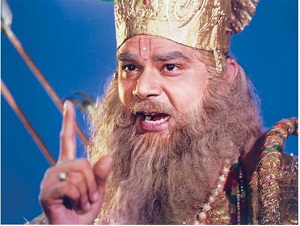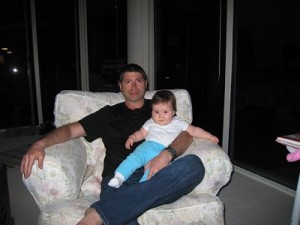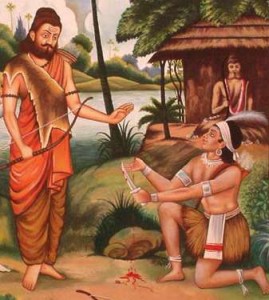 There are times in our life when all the stars line up. Suddenly you find that success is staring you in the face. There is only one hitch. You may have to temporarily put your moral values on hold. What do you do? The lesson from Dronacharya’s 5000-year-old story should give you pause. Dronacharya’s story, taken from the epic called Mahabharata, illustrates the pitfalls of taking too many shortcuts.
There are times in our life when all the stars line up. Suddenly you find that success is staring you in the face. There is only one hitch. You may have to temporarily put your moral values on hold. What do you do? The lesson from Dronacharya’s 5000-year-old story should give you pause. Dronacharya’s story, taken from the epic called Mahabharata, illustrates the pitfalls of taking too many shortcuts.
Dronacharya was a great teacher and warrior. He ran the school that trained royal princes and people of high nobility. As such he depended on royal patronage and was always keen to be in the good books of the ruling elite. Dronacharya’s dilemma was that he found things going in his favor as long as he made morally questionable decisions. What should he do? Should he continue to act in his own interest or should he do the right thing? Dronacharya’s dilemma is really our dilemma and the lessons from this story can be applied to our lives.
Dronacharya’s ultimate ambition was not to be just an academic but a commander in the battlefield where he could demonstrate his knowledge and expertise in the real-world. Once he was a successful commander of an army he would have real political and military power and he would no longer be beholden to the ruling elite.
Though Dronacharya was a formidable warrior and a great teacher, it worked to his advantage if he made exaggerated claims of his capabilities. He was after all dependent on royal patronage for sustenance. He carried on the same charade with the royal princes who were in his charge. When these children grew up to adulthood and wielded power, they overestimated Dronacharya’s capabilities. They thought that he was unbeatable in war. Many of these princes soon set out on a course that was morally incorrect and would lead to future conflict. They did so because they knew that Dronacharya was completely loyal and if war were to breakout they would easily crush the enemy with his help.
Dronacharya did nothing to stop this behavior. In fact this was exactly what he wanted. He wanted the ruling elite to be increasingly dependent on him and in case of war to promote him to the position of commander-in-chief the army.
By supporting immoral actions of the ruling elite Dronacharya was making himself party to these actions. The right course of action would have been to rein in the ruling elite. If he had done so war might have been prevented, but Dronacharya remained silent. Unfortunately his ambition had blinded him to the growing risk and the folly of his actions. At the outset the enemy forces were minor and could easily be crushed. But the outrageous behavior of the ruling elite was slowly alarming distant states who saw that they would be next in line if the behavior continued unchecked. When it came time for war, the opposition rallied a much larger force than expected. Still Dronacharya was not perturbed. He was overconfident of his own capabilities. He believed that he could lead the army to victory if he were given charge of the battle.
Continue reading



